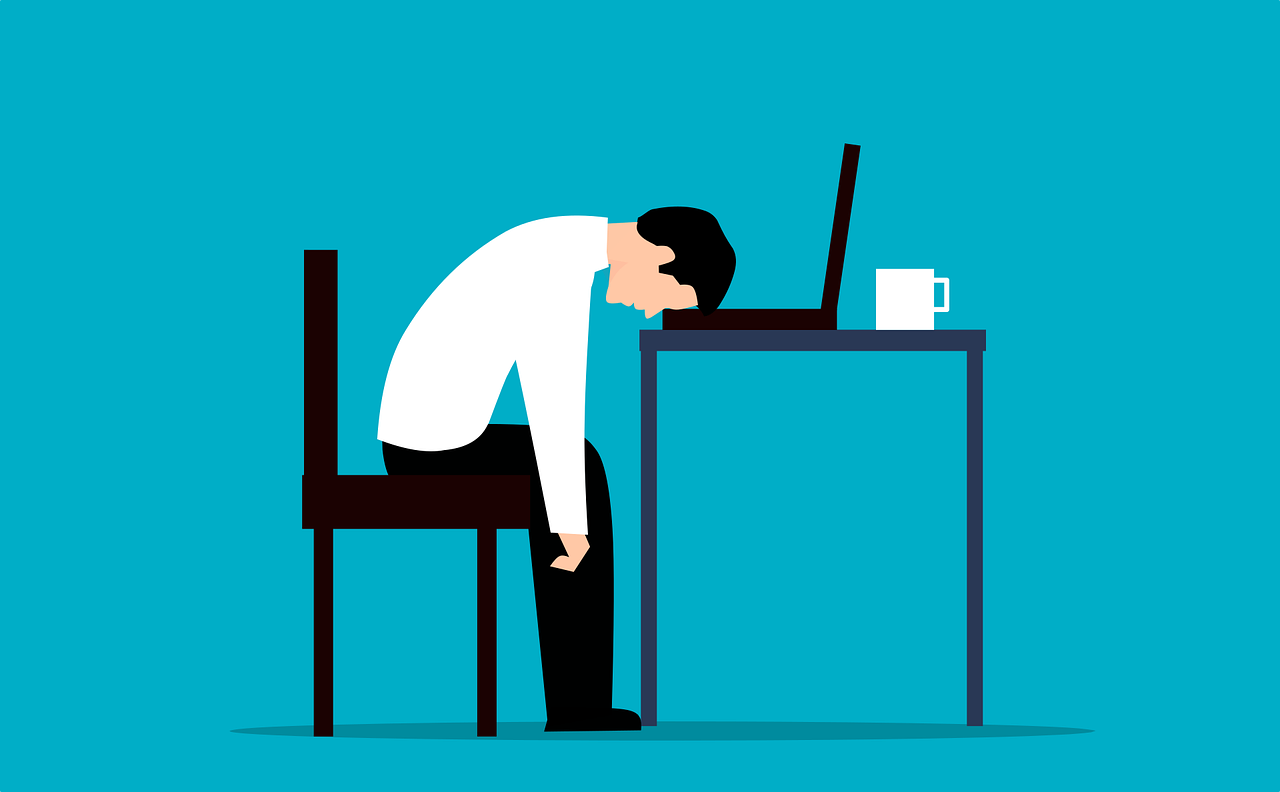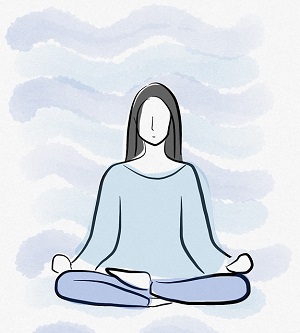
What is Burnout?
Burnout is the state of constant physical and mental exhaustion that sucks the happiness and fulfillment out of daily activities and interactions. Psychologist Herbert Freudenberger coined the term in the 1970s. Be it a career, relationships, or friendships; burnout can make otherwise enjoyable things a chore and a burden. It typically happens when one is consistently exposed to stressful situations. These can include caring for a sick family member, consuming negative social media, working in a toxic and politics-ridden corporate environment, or having an abusive partner.
How to Identify and Avoid Burnout

Employee burnout had a significant increase during the COVID-19 Pandemic.
While it can be a little tricky to identify burnout, some common symptoms to look out for include constant exhaustion, irritable mood, isolation, and getting sick frequently. It is important to pay close attention to the earlier signs before they completely take over.
Although stress is inevitable, burnout can easily be prevented with the following steps…
Look for Triggers
Highlighting the problem area can help you effectively look for solutions and tackle burnout. This may seem like a no-brainer, but knowing which specific areas of your personal or professional life are causing the most stress can help you make the appropriate adjustments.
Prioritize Self-Care
Once you have identified the main stressor(s), it is then essential to remove or limit your interaction with it. For instance, if social media is the reason you constantly feel incompetent, then going on a complete social media detox is something you should try. Another way is to replenish your

Practicing self-care (like meditation) can help prevent burnout.
mind and body with positive habits. These include:
- Getting a minimum of 8 hours of sleep daily
- Eating foods rich in omega fatty acids, lean protein, and fresh fruits and vegetables
- Exercising for 30 minutes daily to boost happy hormones. Even a few pushups or jumping jacks can help.
- Keeping a gratitude journal where you list 3 things you are grateful for every day.
- Writing down your feelings. I recommend Bullet Journaling. Pouring out all the negative emotions on a piece of paper so you can feel lighter.
- Practicing meditation or breathing. Meditation helps your brain focus by blocking the humdrum of your thoughts. You can also try box breathing. Take a deep inhale for 4 seconds, hold that breath for 4 seconds, then exhale slowly over a span of 4 seconds. Repeat these steps 10 times daily for enhanced focus and clarity.
- Getting some sun. Vitamin D is crucial for getting rid of the blues, so develop the habit of stepping outside in the sun for 15 to 20 minutes every day.
Use Relaxation Reminders
Setting daily relaxation reminders is an excellent way to keep yourself in check and manage your stress efficiently. Things as simple as taking a deep breath every 15 minutes, rolling back your shoulders, or taking a quick walk between work can help you feel more relaxed.
Practice Quiet Quitting

“Quiet quitting” is when you intentionally do the bare minimum to not get fired.
If your work life is the main culprit for your burnout, you may benefit from quiet quitting. Quiet quitting does not mean quietly quitting your job. It means letting go of this narrative that you have to be a perfectionist with regard to your craft and giving it your all. Setting healthy boundaries and only completing tasks that you are expected to do without going above and beyond will help you feel less burnt out. Skip that overtime, stop trying to please your management too much, and start delivering what you are being paid to do while you look for other opportunities.
Get Professional Help
Sometimes, admitting that you need help can be difficult. However, during times of continuous stress, it is important to ask for help. Ask close friends and family to get involved or seek the help of a licensed therapist or life coach.
Bottom Line
Burnout, if left untreated, can cause mental and physical health issues and become very difficult to recover from. For this reason, identifying its early warning signs is integral to avoid long-term consequences. If you or a loved one is experiencing burnout, it’s best to seek out professional help and prioritize self-care.
p.s. – Feeling burned out? Book a free trial session and we’ll see if we’re a fit for working together.

Paul Strobl, MBA, CPC
Owner of Confide Coaching, LLC
Paul is a Master Life Coach for individuals, executives and business owners. Originally from Houston, Texas, he has been location independent for most of his adult life. He currently resides in the Rhodope Mountains of Bulgaria near the Greek border with his brilliant wife, 13-year-old stepson (officially adopted in 2021!) and a Posavac Hound rescue.
Sources
https://ww w.healthline.com/health/tips-for-identifying-and-preventing-burnout
https://ww w.themuse.com/advice/how-to-avoid-prevent-burnout-work
https://in side.ewu.edu/calelearning/psychological-skills/preventing-burnout/

